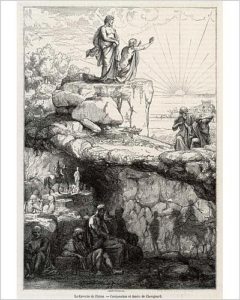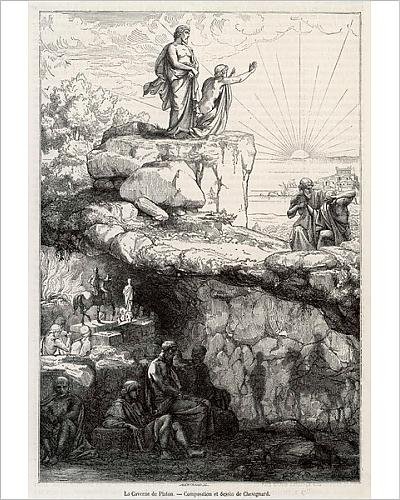 Ritual is strange—or so it seems to our rational minds—yet, strangely, for many of us who participate in these often highly stylized and repetitive actions, we feel better afterward. Why is this so? Is there a method to ritual’s madness that helps explain this phenomena? I think so.
Ritual is strange—or so it seems to our rational minds—yet, strangely, for many of us who participate in these often highly stylized and repetitive actions, we feel better afterward. Why is this so? Is there a method to ritual’s madness that helps explain this phenomena? I think so.
In a departure from the usual Mormon Matters formula of a panel discussion, this episode features me, Mormon Matters host Dan Wotherspoon, reading a short article I wrote for the Fall 2016 issue of Sunstone magazine, “Why Ritual ‘Makes Sense’.” In it I address various aspects of ritual and how, even though rites and practices can be extremely diverse in nature, they share key commonalities. Rituals, through their various means, attempt to help us access more fully the energies and their attendant empowerment for us that are all around us but often missed due to the strength of the sensory input from our bodies and the clutter of thoughts and concerns going through our brains. How do rituals help us do this? Why is it important for us to seek methods that can bring us into these kinds of experiences? Why do rituals, such as the LDS endowment, often feature retellings of a group’s cosmogonic myths (stories of how the world/cosmos came to be)? I offer clues to these and many other features of ritual and the effects of our participation.
I hope you’ll enjoy these ideas and this side trip away from the panel format. I promise, though, that we’ll be back to that with the next episode!
_____
NOTE: Save the Dates! Natasha Helfer Parker and I will be hosting two Mormon Matters retreats in Utah this summer and fall. We will host the first 14–16 July, and the second, 20–22 October. Watch for descriptions and registration information very soon!
_____
Links:
Dan Wotherspoon, “Why Ritual ‘Makes Sense’,” Sunstone, Fall 2016
Link to the Faith Matters Foundation website, where video of the conference “New Perspectives on Joseph Smith and Translation” will be available for download and viewing by 24 April 2017.


Comments 5
I adore ritual experiences, both religious and otherwise, on a spectrum. I enjoy the ability of ritual to lead me into altered states of consciousness with different combinations of perception, ways of thinking, and altered modes of behavior. I don’t like participating in sanitized rituals – I enjoy the vulnerability of altered social decorum and highly stylized performance. I prefer call-and-response to performer-spectator participation – I get bored and disinterested when I have to sit quietly and listen to repetitions. I enjoy new ritual creation.
I get frustrated when participants go to great lengths to justify or legitimize the behavior of ritual when they are on the verge of entering the ritual rather than directly entering into the ritual space – it reminds me of a child afraid to enter the water, and there’s the horrible temptation to push the kid into the water to resolve the tension I feel when seeing the inner conflict play out in someone else. The tentativeness is understandable because the ritual “doesn’t make sense” the way familiar performances seem to make sense, but the lengths to which some go to justify these altered expressions feel like a contest is being set up in the space between the awkwardness some feel about the ritual and reality the way some perceive “reality” and in some ways limit or stretch it. I find myself wanting to collapse the division between the two spaces so that they flow seamlessly together. The tension and/or division others want to maintain between the spaces feels artificial to me whereas transition into the altered state of ritual does not.
Considering the near universality of ritual performances in societies, it is interesting to me to see the emergence and shaping of ritual in modern society, from graduation ceremonies and secular weddings to social processes like standing in lines. I remember discovering the story (I can’t quote sources and hope I am not significantly off in my retelling) about Harold B. Lee being off visiting a stake when the quorum sent out a change in the order of who the sacrament was delivered to during services and his reaction to the change. Apparently, the sacrament was served priorly starting with those at the very back of the chapel and Harold B. Lee thought it was for the purpose of welcoming all, especially visitors, and the change was to serve the presiding authorities first to emphasize the example set by leadership. Sometimes those little changes significantly alter ways of thinking about a ritual and the perceptions within the society in general.
Do you have any thoughts on the chicken-or-the-egg evolution of religious ritual, something which seems pervasive in Mormonism as I’ve experienced it (I have little knowledge of ritual evolution in other religious traditions)?
In further looking, I think the story I read was about Heber J. Grant and not Harold B. Lee. Anyhow, I was attempting to give an example in ritual changes – attempting – and the several changes in sacrament service were the first to come to mind.
Social Science Research Explores Psychological Effects Of Rituals
VEDANTAM: Well, Hobson and the other researchers find that complex rituals change how people interact with one another, especially when it comes to the amount of trust they repose in others. The researchers had volunteers play a game, for example, where they could share money with a partner, but they didn’t know whether the partner in turn would share money back with them.
HOBSON: Those participants who did do the ritual over the course of the week gave more money or they entrusted more of their own money to fellow ingroup members with whom they shared this arbitrary, minimal ritual. And they actually ended up entrusting less money to their outgroup members with whom they didn’t share this ritual.
INSKEEP: Wait a minute, even this made-up ritual became a bonding activity that pulled me together with some people and separated me from others?
VEDANTAM: That’s exactly right. If you can get people to do a complicated ritual and have them do it over a repeated period of days, it turns out that this can increase trust and cooperation. And this might be one reason that rituals are so ubiquitous all around the world. Of course, this research is also pointing to the downside of rituals, which is that even when they’re completely meaningless and made up they can cause us to distrust people from groups that do not share the same ritual. And, of course, there are 10,000 examples of that all around the world.
INSKEEP: Shankar, this segment is over, so let’s do our regular secret handshake.
I’m so glad you shared this article with us when you did, Dan. I was searching for a way to approach the Gospel Doctrine lesson 18 (temples) this year for D&C and Church History and your insights and perspective gave me such a wealth of thoughts and ideas from which to prepare a lesson I can really get behind. I truly got so much out of it personally, and I will do my best to pass it along to the class and hopefully spark a good discussion. That’s all. Thank you for sharing it with us in the podcast. I don’t know if I would have found it otherwise.
Author
How neat, Lori! Thank you!
Two other (Mormon Matters) resources for you:
http://www.mormonmatters.org/2012/09/05/matters-of-perspective-2-the-sacred-secret-open-to-all-ye-are-gods/. This is a paper by Charles Randall Paul that I love that speaks to how we can speak about the temple to those outside the faith. It has wonderful insights in it!
http://www.mormonmatters.org/2011/07/05/40%E2%80%9341-ritual-within-mormonism/. This episode was very early on in Mormon Matters and covers some of the same ground as my article, but has much, much more. I think you’d enjoy it!
I’m now excited to see what happens in my ward for Lesson 18! Thank you!